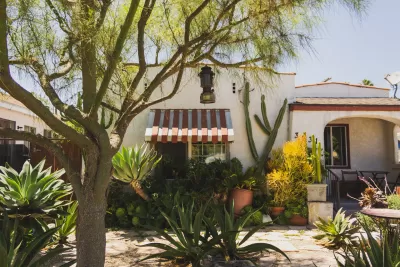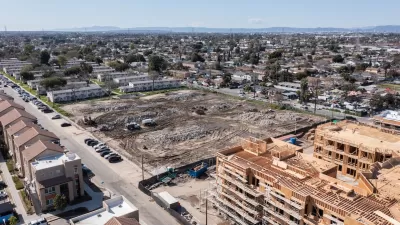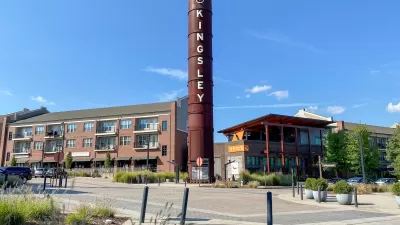Real estate developers around the country are converting old single-family homes into “culinary hubs,” reports The New York Times.

According to an article in the New York Times by Arielle Paul, repurposing single-family homes into micro restaurants or “culinary hubs” is a growing trend nationally. “From Los Angeles to Nashville, developers are transforming clusters of old homes into walkable culinary hubs for the surrounding high-density neighborhoods,” Paul reports. Advocates of this new use say it’s an excellent reuse of blighted properties, “sustainably preserving the homes while serving the economic needs of the neighborhood.” But critics are concerned about the loss of affordable housing and potential gentrification and displacement of existing communities.
Paul points out that conversion of historic homes into restaurants is not new. There are famous restaurants around the country that are located in what were once homes. She spoke to real estate and architecture experts that said only certain houses would meet the criteria such as foot traffic to successfully convert to restaurants and that these types of homes would provide affordable, lower-square-foot commercial spaces for start-ups and small businesses.
Stuart A. Gabriel, a finance professor and the director of the Ziman Center for Real Estate at the University of California, Los Angeles, told the New York Times reporter, that the loss of homes might not be significant enough to move the needle on the housing shortage at large and that he is concerned about potential displacement of families. “On the other hand, there are a whole set of positives in terms of amenities and services, and then improvements, property values and equity gains for the people who actually own housing there,” he said.
FULL STORY: Culinary Hubs Put a Twist on Home Cooking

Planetizen Federal Action Tracker
A weekly monitor of how Trump’s orders and actions are impacting planners and planning in America.

Congressman Proposes Bill to Rename DC Metro “Trump Train”
The Make Autorail Great Again Act would withhold federal funding to the system until the Washington Metropolitan Area Transit Authority (WMATA), rebrands as the Washington Metropolitan Authority for Greater Access (WMAGA).

The Simple Legislative Tool Transforming Vacant Downtowns
In California, Michigan and Georgia, an easy win is bringing dollars — and delight — back to city centers.

The States Losing Rural Delivery Rooms at an Alarming Pace
In some states, as few as 9% of rural hospitals still deliver babies. As a result, rising pre-term births, no adequate pre-term care and "harrowing" close calls are a growing reality.

The Small South Asian Republic Going all in on EVs
Thanks to one simple policy change less than five years ago, 65% of new cars in this Himalayan country are now electric.

DC Backpedals on Bike Lane Protection, Swaps Barriers for Paint
Citing aesthetic concerns, the city is removing the concrete barriers and flexposts that once separated Arizona Avenue cyclists from motor vehicles.
Urban Design for Planners 1: Software Tools
This six-course series explores essential urban design concepts using open source software and equips planners with the tools they need to participate fully in the urban design process.
Planning for Universal Design
Learn the tools for implementing Universal Design in planning regulations.
Smith Gee Studio
City of Charlotte
City of Camden Redevelopment Agency
City of Astoria
Transportation Research & Education Center (TREC) at Portland State University
US High Speed Rail Association
City of Camden Redevelopment Agency
Municipality of Princeton (NJ)





























